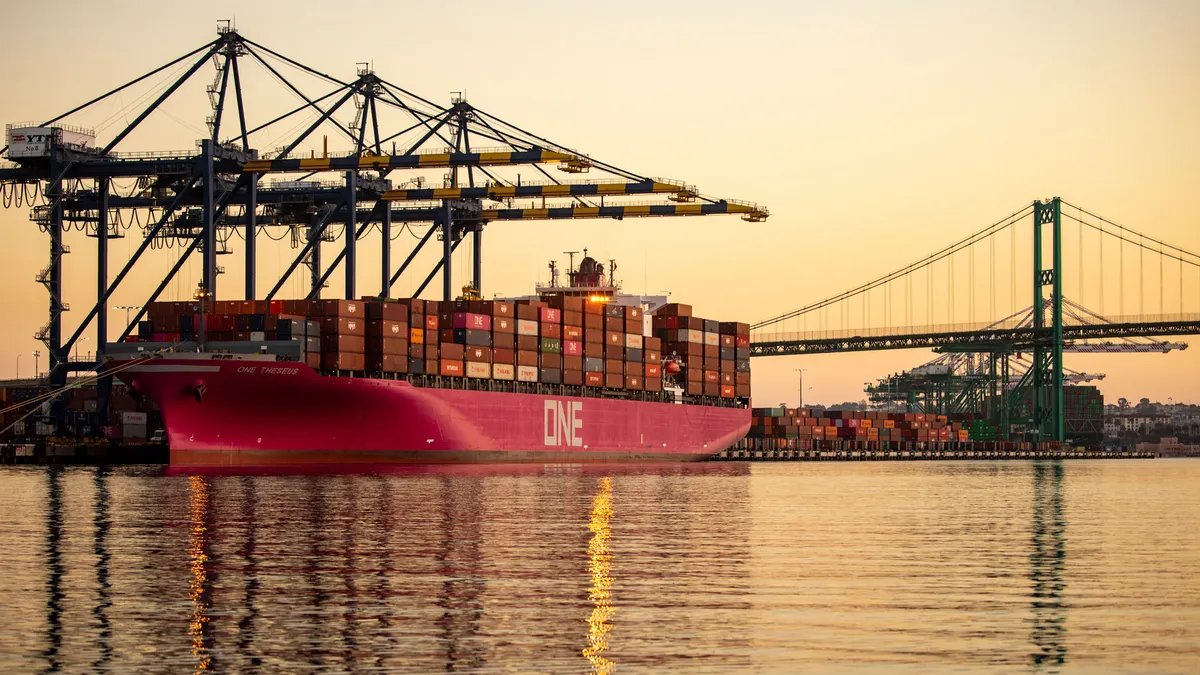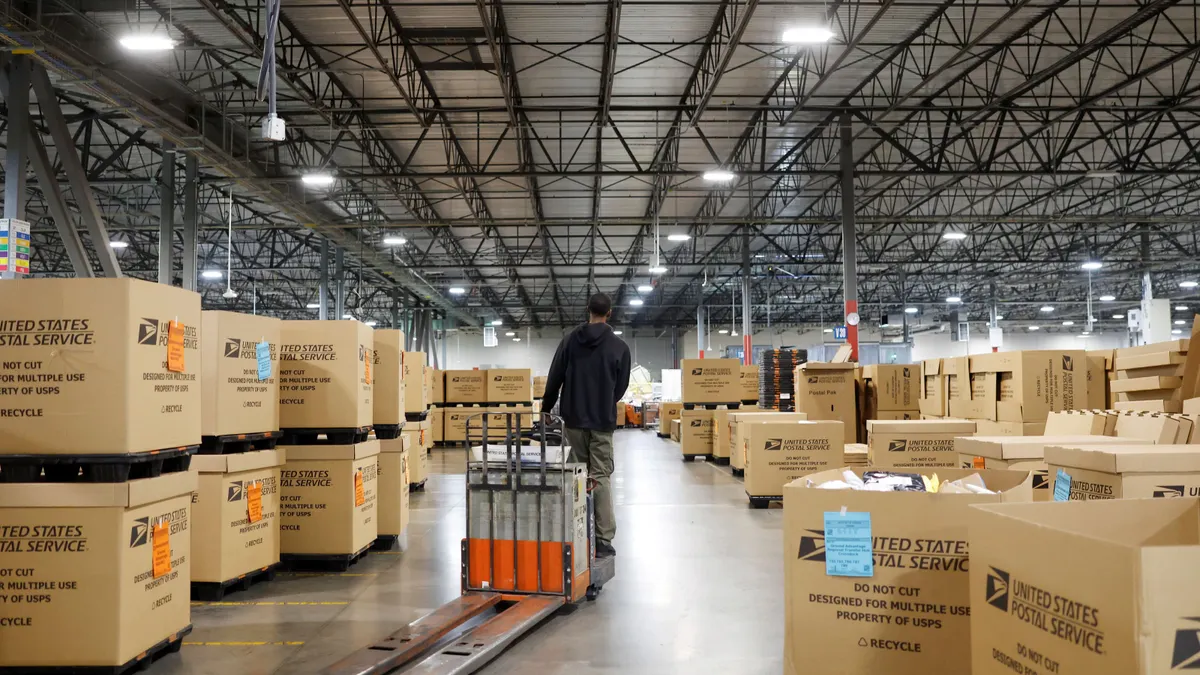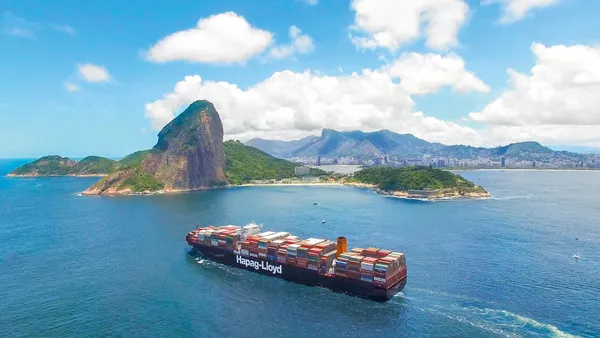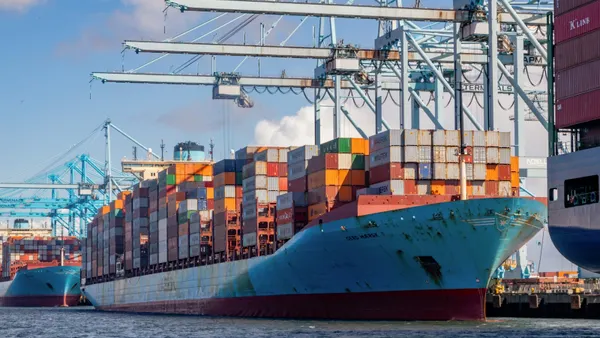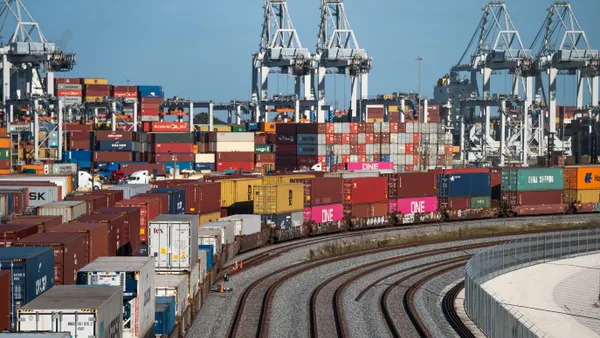The Port of Los Angeles expects to see bookings from Asia pick up following the 90-day tariff reduction on China-based goods, Executive Director Gene Seroka said during a May 19 press briefing.
A push to import cargo prior to duties increasing to 145% again will likely contribute to the uptick, Seroka said. However, prices are still very much elevated, which will continue impacting shipping activity.
“We’ll probably see that uptick in origin bookings, especially from China, but I don’t see a surge that would really overtly impact the Port of Los Angeles,” Seroka said. “On the ground right now, we have less than 30% the number of containers that we had during the peak of the peak during COVID.”
Shippers and supply chain stakeholders have battled trade instability as negotiations play out between the U.S. and China. After months of tariff-driven frontloading — a common strategy to navigate logistics hurdles — some shippers began pausing ocean shipments from China to avoid paying the high tariff rates. In April, China-to-U.S. freight demand plummeted 30% to 50%, per Freightos.
Trading partners outside of China have been subject to a 10% baseline tariff since President Donald Trump issued a 90-day pause on most country-specific duties in April.
However, the 90-day pause is “not a long time in our business,” Seroka said.
“May is traditionally the month where a lot of purchase orders go in for the year-end and Christmas holidays,” he said. “It typically takes about three months to send an order to a factory, have those goods made and get them ready to ship from Asia to the United States.”
The port director added that there may also be a stronger flow of goods, like hospital supplies and some manufactured parts and components, as inventory dwindles
Last month the Port of Los Angeles processed 842,806 twenty-foot equivalent units, up 9.4% year over year — its third-best April on record, the port reported. Since the start of 2025, the port has handled over 3.3 million TEUs, up 6.2% YoY.
Loaded imports landed at 439,230 TEUs in April, up 5% YoY primarily due to importers pushing to move cargo before tariffs take effect. Exports, meanwhile, were down 3% YoY to 128,394 units, marking the fifth consecutive month in declining exports. Empties were up 25% YoY to 275,183 container units.
Seroka also reported a 30% drop in imports in the first week of May, adding that the total monthly decrease is “likely to be substantial."
Looking ahead, cargo flows for June and July remain uncertain, said Seroka. In May, 17 of 80 sailings have been canceled so far — 11 of those cancellations being China port calls. As of the press briefing, 10 cancellations are slated for June.
Seroka noted that a third-party logistics company reported that bookings three weeks down the line are 80% of what is typically expected for this time of year.
“So, I don’t know that we’re going to see — with the information I have today — that we’re going to see just such an amount of cargo that it’s going to put us at a stoppage and have ships at anchor, like we witnessed before,” he said. “I think it’s a more deliberate flow, and I’m looking at real data from trusted contacts in Asia that are working both private sector and at ports, looking at how these bookings are starting to pick up.”



